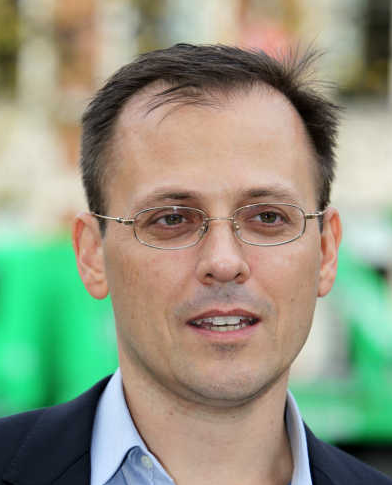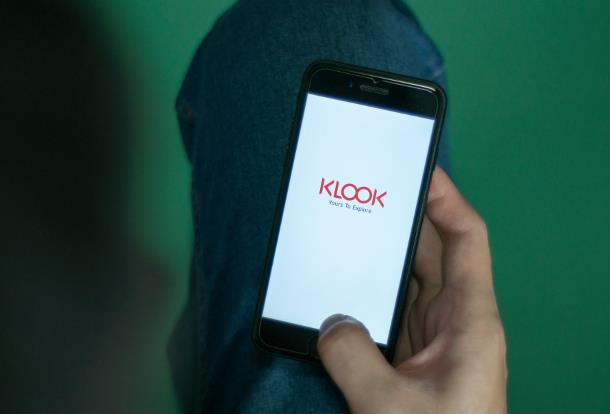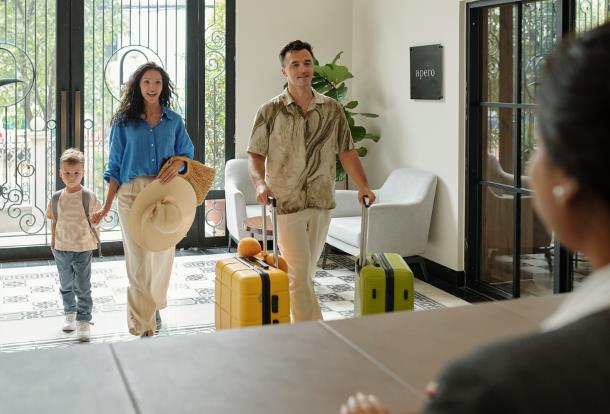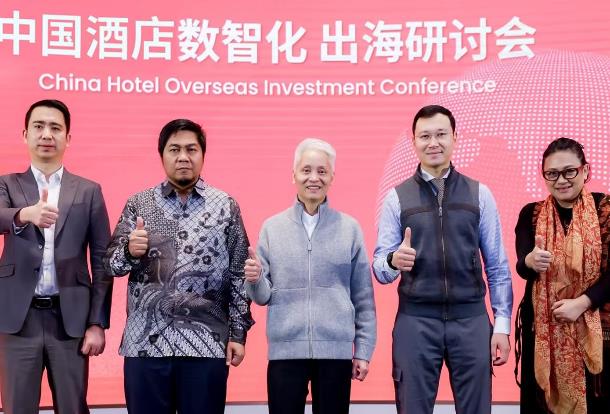ChinaTravelNews, Jerry Tang - Having co-founded China’s most successful travel search engine and invested in Europe’s largest tours and activities platform, entrepreneur-turned-investor Fritz Demopoulos said he is still interested in services marketplaces post-pandemic.
In 2005, Fritz started Chinese travel search startup Qunar with his business partners Chenchao Zhuang and Douglas Khoo, and served as the company’s CEO until 2011, when Baidu acquired a majority stake in Qunar.
He later set up venture capital firm Queen's Road Capital in Hong Kong, and invested in Berlin-based in-destination tours and activities booking platform GetYourGuide, Barcelona-headquartered corporate travel firm Travelperk, as well as other travel startups.
Fast forward to 2022, Fritz thinks that the current investment environment is difficult to determine. But he firmly believes in the tours and activities sector, and that China will always present entrepreneurs and investors with amazing opportunities.
In a recent interview with ChinaTravelNews, Fritz talked about the difference between building a business "empire" and a profitable "city-state". He also offered three takeaways for young entrepreneurs when they start a new business.
Following are excerpts of the interview, edited for brevity:
How did Covid-19 change your view on life and the investment environment?
I realized that much of the travel we did before Covid was inefficient or not necessary, that’s for sure. When something is cheap and readily available, we are less efficient how we use that service or product. I think I did that with travel, like a lot of other people.
When you don’t travel as much, sometimes you can do more in new and interesting ways. Broadly speaking, our value comes from “depth” (especially for younger people who need to develop specialized skills to compete) and sometimes our value emanates from “breadth” (especially for seasoned executives and entrepreneurs with a range of experiences and expertise). I felt the pandemic provided me the opportunity to focus more on developing breadth of knowledge and experience.
The investment environment is difficult to determine. We see a lot of volatility. It’s like being on the top of the ocean, where the waves dramatically rise and fall. It isn’t quite a typhoon yet, but we see storm clouds… However, in spite of the imminent storm, the bottom of the ocean is always more peaceful. That’s where the startups are. In other words, the early-stage companies with adequate funding are going to continue to build their businesses, execute their plans and follow their vision in spite of what happens at the top of the ocean. The companies closer to the top of the ocean, i.e. the later-stage or pre-IPO companies, however, will feel the effects of the storm. The effects might be difficulties in raising capital, maintaining growth rates and attracting talented staff.
What are the new projects that you are looking at in recent years? Any thoughts on the travel startup sector in China or around the world?
China will always present entrepreneurs and investors with amazing opportunities. Of course, the nature and type of those opportunities may vary depending on circumstances. I always advise entrepreneurs and investors to spend time in China in order to learn about new business models, new types of consumer behavior, and new platforms.
I still like services marketplaces. I think the travel industry will continue to provide opportunities. We might see successful new travel companies which exploit new platforms (web 3.0, NFT, metaverse), new technologies (AI, real-time data & analytics) and new geographies, i.e. the Vitamins (Vietnam, Indonesia, Thailand, Argentina, Mexico, Nigeria, Sudan).

Fritz Demopoulos
Why did you invest in RVShare? Your previous investments in companies like GetYourGuide and Tourlane seem to show your vote of confidence for the tours & activities sector, how will this sector evolve post-pandemic?
RVShare has an amazing management team. The company’s CEO Jon Gray was one of the first employees at HomeAway, a hugely successful company. And two of HomeAway’s cofounders - Brian Sharples and Carl Shepherd - have been very involved in the business. I’ve admired these guys for sometime and feel fortune to be able to work together. Coincidently, Carl’s son once worked for us at Qunar.
RVShare is the beneficiary of three important trends:
1. Experienced travel industry veterans are utilizing their skills & capabilities to take advantage of a great market opportunity.
2. The shift to domestic travel due to Covid-related travel restrictions.
3. The shift to outdoor travel and activities.
I’m a big believer in the tours and activities sector - in fact, in any services marketplace. We have an extremely fragmented, local and unstructured supply base. On the demand side, we have a wide range of customer preferences. This is the perfect storm, so to speak, for any marketplace business - and within the local tours and activities space, GetYourGuide has fully exploited the opportunity by offering unique and compelling value to both supply and demand side customers. We’ve already surpassed 2019 levels for many of our markets. And consumers, who are restless to get back to travel, are very open to trying new and interesting experiences - which is GetYourGuide’s sweet spot.
Do you think GetYourGuide and Klook will get a merger, since they are both invested heavily by the same investor - Softbank?
I always advise entrepreneurs to listen to their investors, but just one-third of the time. Whether that’s Eric and Ethan at Klook, or that’s Tao and Johannes at GetYourGuide, they ought to listen to their investor Softbank sometimes, but they should still stay independent-minded and focus on their own strategies.
So my sense is that collaborating just because we share the same investor doesn’t seem to me to be a likely scenario. I think these two exceptional companies need to be independent and creative, and maybe in four or five years, when growth slows, there could be room for a discussion. But right now, I think independence is the best way to create value.
Do you think domestic or local travel will continue to dominate the China market? Has Covid-19 changed the travel and tourism industries forever?
Domestic travel will continue to increase in China. I feel that domestic travel, even without Covid, was expected to increase substantially. Covid may have accelerated this trend. The early signs of a massive levelling up in tourism were always staring us in the face. A number of years ago I started to notice cool bars and coffee shops emerge in Beijing and Shanghai. The creative energy - that drove all these new bars and coffee shops in Beijing and Shanghai - was a leading indicator for new levels of creativity throughout China, including the tourism sector. Today we see amazing experiences on offer - from camping, golf & water sports to cultural and artistic activities. We’ve also seen outstanding accommodation options for consumers. The environment has been cleaned up in many areas. All these are good signs of what is to come.
What’s your take on OYO?
I haven’t met Ritesh, but I give him credit for having the vision, being aggressive, raising a lot of money, and not being afraid to spend it.
At one point, the OYO model sounded like a pretty good idea. And of course its large shareholder Softbank believes in that.
But there are execution challenges. I think if Softbank were in the same position again, would they deploy that kind of capital in OYO, or would they deploy that kind of capital in WeWork? It’s hard to tell.
You’ve also invested in TravelPerk, but there are concerns that business travel may never return to pre-pandemic levels, what’s your take on that? Do you see major disruption potential in this space in the next few years?
TravelPerk is unique in that it is disrupting the traditional, existing companies by deploying new digital technologies, new cloud-based services and new types of analytics.
And yes, business travel will be impacted as we come out of Covid. Before the pandemic, it used to be a company had all its employees in one or two locations, no remote staff, and an executive would travel for a few days, stay at a hotel and then return. Now, companies have multiple locations, many staff work remotely temporarily or full-time, and while some executives may still travel frequently and stay in hotels, other executives may travel less frequently but for longer periods of time on “bleisure” trips, both business and leisure, while staying at alternative accommodation. It’s definitely going to be better, but the business travel sector will require new services to meet these changes.
You once said the idea of founding Qunar is when you think about the many areas that Google is working on and you narrowed down to focus on just travel. But these days some companies are doing quite the opposite, like super-app Meituan covering local services and hotel bookings, and AirAsia looking to go beyond cash-bleeding airline business and tap fintech and lifestyle services - what do you think of Meituan’s and AirAsia’s strategies?
There’s a difference between building an empire and building a successful and profitable city-state.
All entrepreneurs have dreams of building an empire but need to first start with their city-state. Some of these city-states (like the little city-state in the Italian peninsula, i.e. Rome) eventually became the Alibaba or Meituan of the ancient world. Others like Athens tried to build an empire, but didn’t quite succeed, although the Athenians still ended up creating one of the most successful and impactful city-states and maybe even more important long-term - Athenian thinkers such as Socrates, Plato and others had a more lasting impact on world history than the long list of Roman generals and emperors.
In other words, all startups begin as city-states, and eventually a few make it to empire. Qunar certainly wasn’t as big as the Romans (Alibaba, Meituan), but we certainly were extremely meaningful and more than a city-state.
Meituan’s vision is extremely consistent: to make people’s daily life easier. It is the ultimate high-frequency services marketplace, and an inspiration for many companies around the world. Under that consistent strategic umbrella, there are all sorts of services. It makes total sense. Plus, Meituan has reached a scale where it not only facilitates transactions, but also is an amazing discovery tool, taking share from the traditional discovery providers, such as search engines. “Emperor” Wang Xing will certainly be around for a long time.
AirAsia’s vision seems slightly different, possibly broader but less consistent. My sense is Tony Fernandes is trying to build a lifestyle brand similar to the Virgin Group. The big synergy umbrella they are trying to build is a brand which has a certain meaning, such as youth, fun, big smile. That’s not that different how he built his airline brand. The broader but less consistent approach means there are unique opportunities, but also room for big mistakes. Virgin Rail, for example, was a disaster for the Virgin company.
From a successful serial entrepreneur to a venture capital investor, what are your biggest takeaways for travel startups in today’s business landscape? Can you name three most important things entrepreneurs should or shouldn’t do when they start a new business?
1. Make sure your personal life is stable. The entrepreneurial adventure will be a long one which requires a high personal commitment. Is your family stable? Are your personal finances stable? Is your partner committed to the long-term, especially the ups & downs?
2. Commit to 3 startups over 10 years. You are not sure which startup will be successful. Hopefully, your first startup will be successful, but it might not be. You need to continue in spite of a failure here or there. The commitment is key, regardless of the outcomes along the way.
3. Double your knowledge every 18 months. You must always learn. Your knowledge of the industry, your market, managing a startup, etc. should double every 18 months. I call that Moore’s Law of Knowledge. If you are continuously learning about your industry, about your market, about running startups, etc. you will build long-term advantage. The best entrepreneurs are always asking questions and taking notes. They don’t rush to judgement, but first try to understand. These great entrepreneurs always double their knowledge every 18 months.
You mentioned in a previous interview that the biggest mistake you made in the early days of Qunar is you didn’t value human resources as much as you should have. Fast forward to 2022, how do you now value the role human resources play in a company?
We’ve seen other CEOs make similar mistakes. But we have seen some promising signs. A recent article suggested that more and more CEOs realize “strategic HR” is fundamental to their company’s success. And yes, I still believe this point. My thinking has evolved a little bit in terms of what makes a great chief people officer. If I were starting another company today, of my first 4-5 hires, 4 would be engineers and 1 would be an experienced HR executive.




